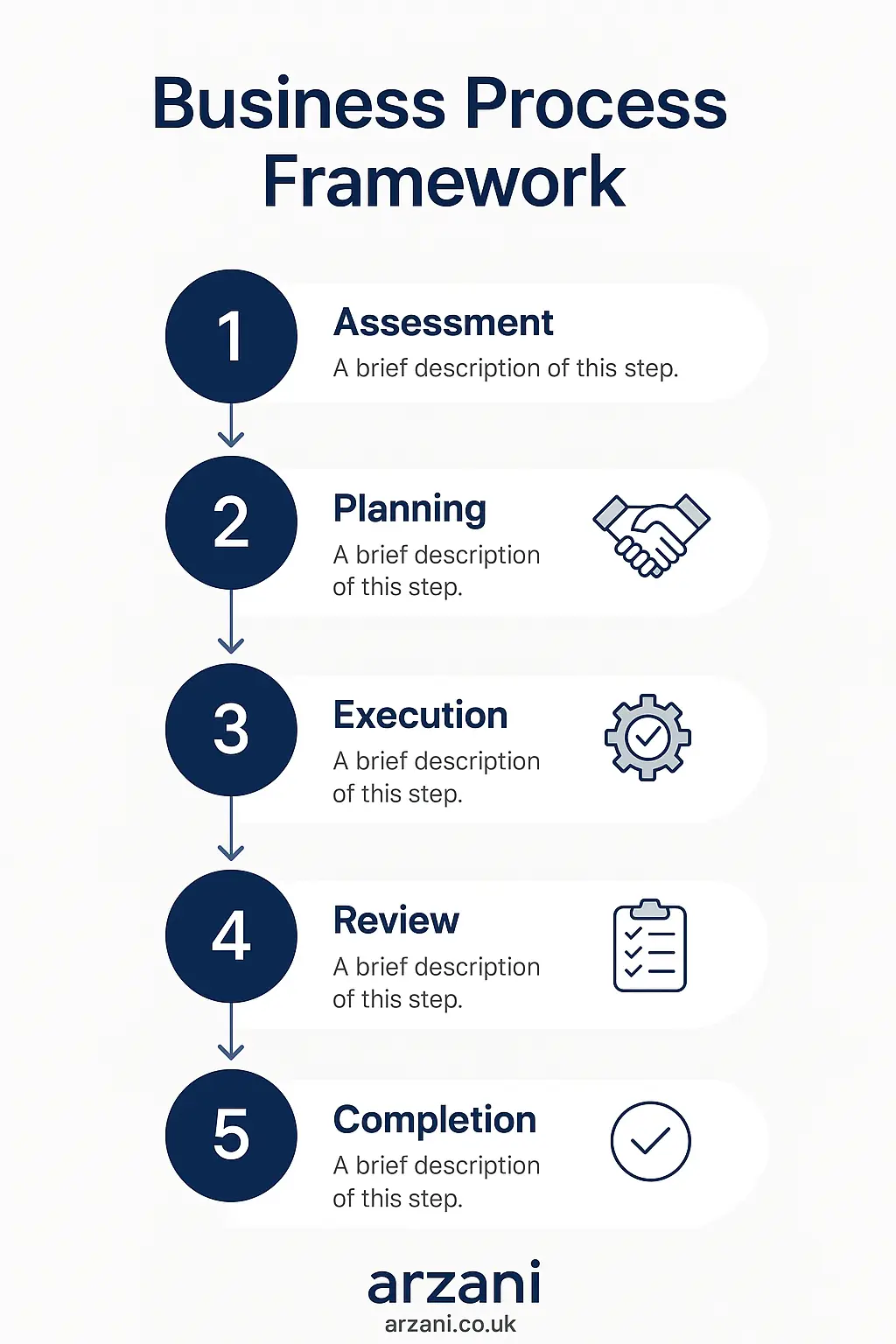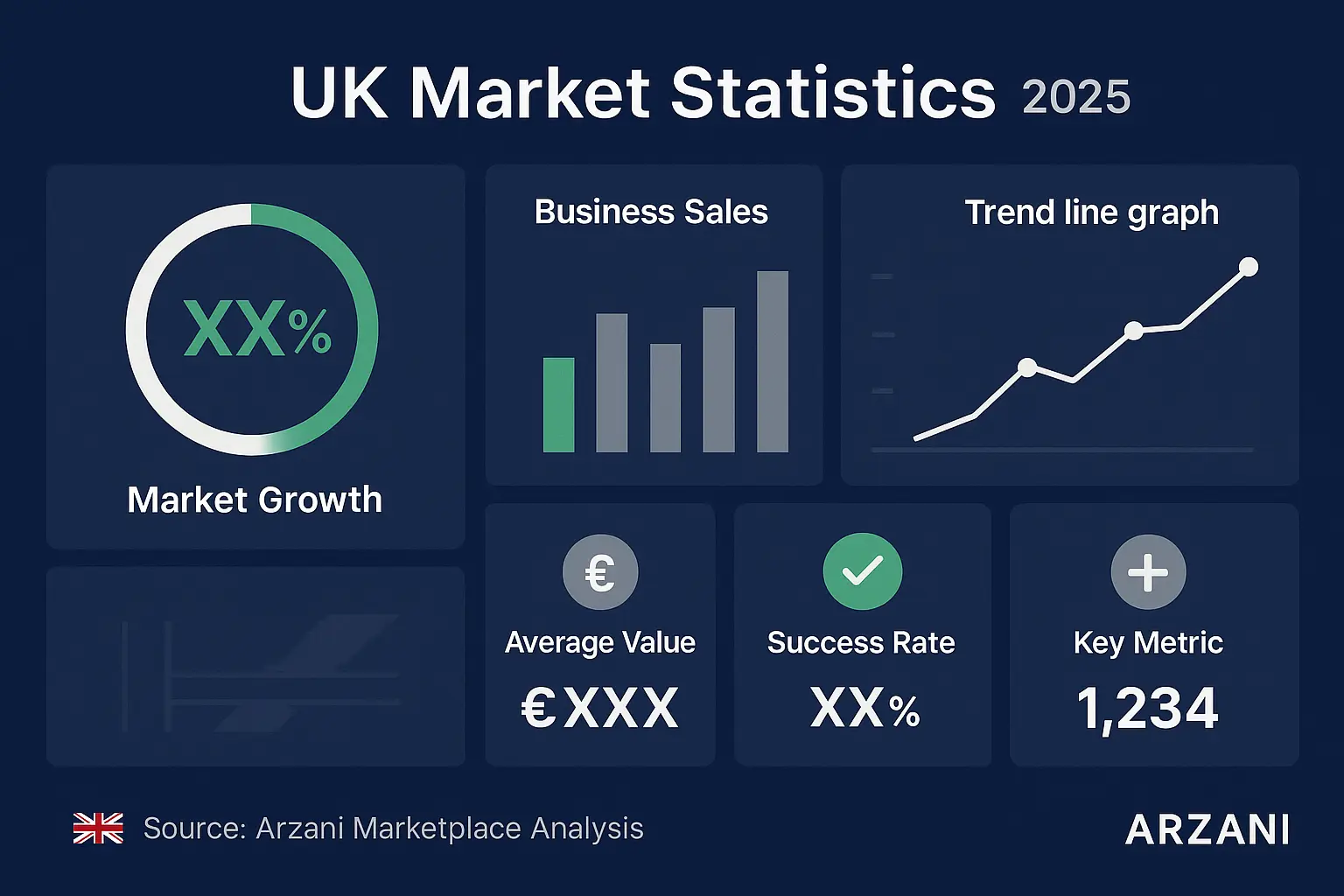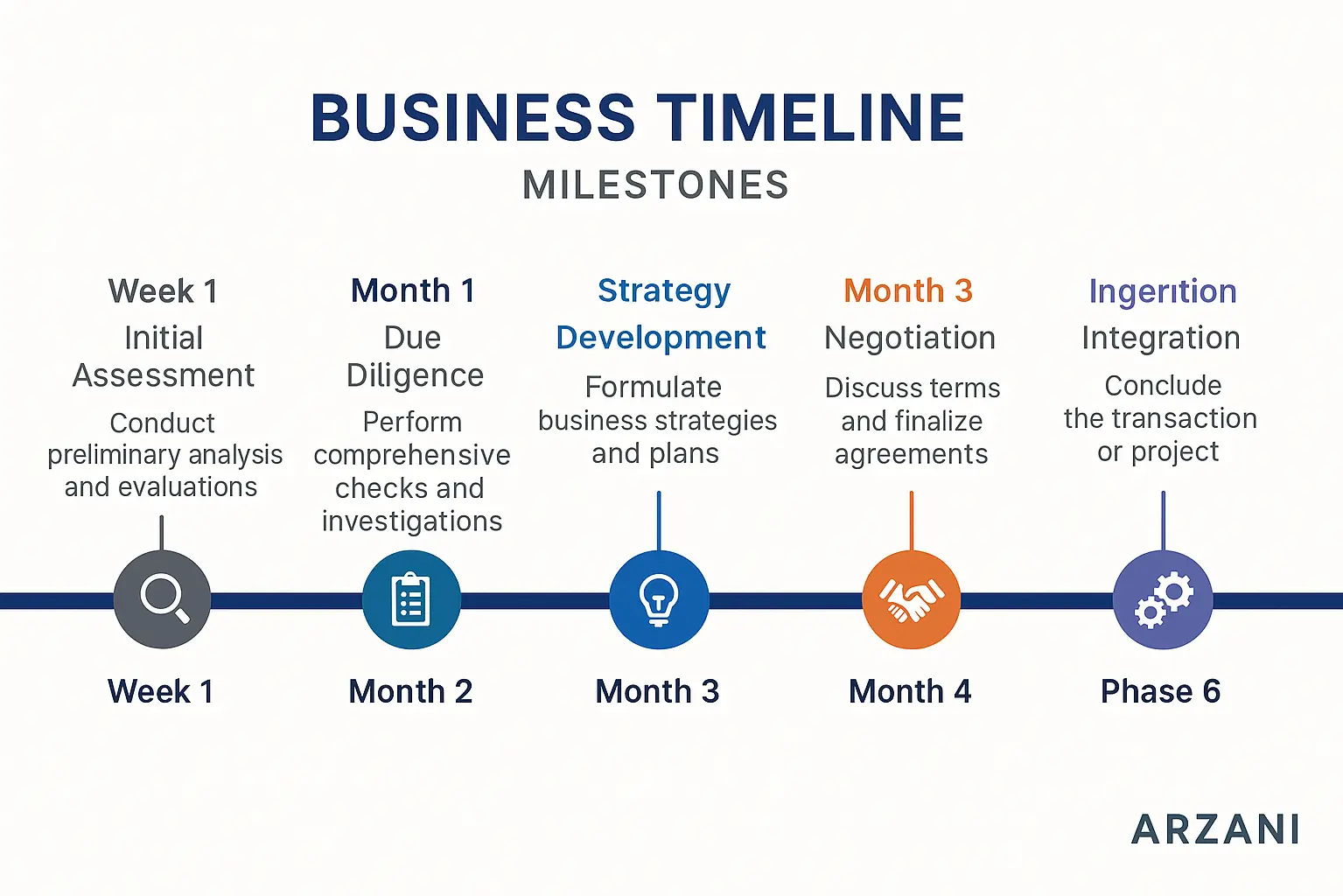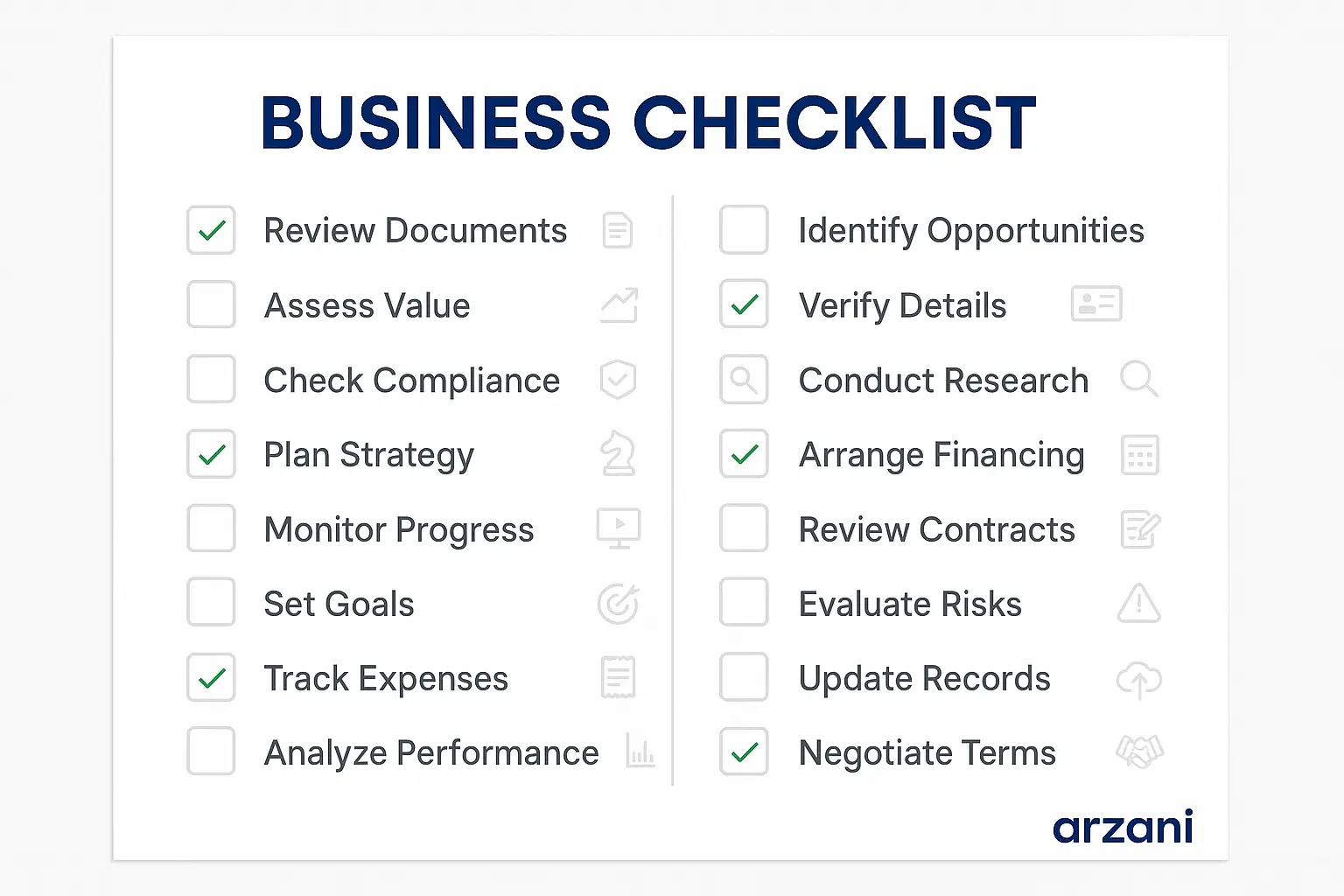Introduction
In 2025, the retail business sale landscape in the UK has transformed significantly due to the digital era. The rise of online marketplaces and evolving consumer behaviours have made selling a retail business in the UK both a challenge and an opportunity. According to the Office for National Statistics, retail sales in the UK saw a 5% increase year-on-year, driven by e-commerce which now accounts for 30% of total retail sales. This sets a fertile ground for those looking to sell their retail businesses effectively in a digital-first market.

Business Process Framework - Step-by-step business retail business sale uk process framework infographic
Table of Contents
Understanding the Retail Business Sale Process
Selling a retail business in the UK involves multiple stages, each requiring strategic attention to ensure a successful transaction. From initial valuation to closing the deal, each step must be meticulously planned.
1. Initial Consultation and Goal Setting
Begin by consulting with an experienced business broker who is familiar with the UK market. Establish clear goals for the sale, including desired timelines and financial outcomes.
2. Valuation of the Business
Accurate valuation is crucial. Consider elements like revenue, profit margins, location. Additionally, digital presence. According to the British Business Valuation Association, retail businesses in urban areas typically fetch a higher multiple due to customer accessibility.
3. Preparing the Business for Sale
Enhance the appeal of your business by improving its digital storefront and customer experience. Address any operational inefficiencies and ensure financial statements are in order.
4. Marketing the Business
Utilize digital platforms such as Arzani.co.uk to reach a wider audience. Highlight unique selling points that appeal to potential buyers.
5. Negotiation and Offers
Engage in negotiations with potential buyers. Be prepared to discuss terms and conditions that align with your goals. Professional mediation can facilitate smoother negotiations.
6. Due Diligence
Allow potential buyers to conduct due diligence. This process involves verifying financial records, legal compliances, and operational aspects.
7. Closing the Sale
Finalize the sale by signing legal agreements and transferring ownership. Ensure compliance with HMRC and Companies House regulations to avoid legal complications.

UK Market Statistics - UK retail business sale uk market statistics and data visualization
7-Step Business Valuation Framework
The valuation of a retail business in the UK involves several critical steps:
- Market Analysis: Understand current market conditions and trends.
- Financial Assessment: Evaluate revenue streams and profitability.
- Asset Evaluation: Consider both tangible and intangible assets.
- Competitive Benchmarking: Compare with similar businesses in the area.
- Risk Assessment: Identify potential risks and liabilities.
- Growth Potential: Assess future growth opportunities.
- Final Valuation: Compile findings to determine a fair market value.
Digital Marketplace Strategies for Selling
In the digital era, effectively leveraging online platforms is essential for selling your retail business:
- Optimize Online Presence: Enhance your business's digital footprint through SEO and social media marketing.
- Utilize E-commerce Data: Incorporate sales data analytics to showcase business performance.
- Engage with Online Communities: Participate in forums and digital networks relevant to your industry.
- Leverage Online Marketplaces: List your business on platforms like Arzani.co.uk to reach potential buyers efficiently.
Case Studies: Successful Retail Sales
Examining real-world examples can provide valuable insights:
Case Study 1: A London-based boutique saw a 20% increase in its valuation after revamping its digital marketing strategy and expanding its online inventory.
Case Study 2: A family-run grocery store in Birmingham successfully transitioned ownership by leveraging local online review platforms to enhance its reputation.

Business Timeline - Typical retail business sale uk timeline and milestones infographic
Frequently Asked Questions
What is a typical multiple for UK SMEs?
Market multiples vary, but typically range from 3x to 5x EBITDA, depending on industry and market conditions.
How does e-commerce impact business valuation?
Businesses with a strong e-commerce platform often receive higher valuations due to increased reach and sales potential.
What legal considerations are there when selling?
Ensure compliance with all relevant laws, including employment regulations and data protection laws under UK GDPR.
How can I make my retail business more attractive to buyers?
Focus on improving profitability, customer experience, and digital presence to increase attractiveness.
How long does it typically take to sell a retail business in the UK?
The process can take anywhere from 6 months to over a year, depending on market conditions and business readiness.
What role do professional advisors play in the sale?
Advisors provide critical insights, assist with valuations, and facilitate negotiations to ensure a smooth transaction.

Business Checklist - retail business sale uk checklist and key considerations infographic
Conclusion and Call to Action
Selling a retail business in the UK digital marketplace presents unique challenges and opportunities. By understanding the market, preparing your business. Additionally, leveraging digital strategies, you can achieve a successful sale. To explore your selling options and connect with potential buyers, visit Arzani.co.uk today. Our platform offers comprehensive tools and resources to support your business selling journey.
About Sarah Mitchell, Business Valuation Expert
Chartered Business Valuator with 15+ years experience in UK SME valuations. Previously Senior Analyst at Deloitte Corporate Finance, now leads business assessment initiatives at Arzani. Holds RICS qualification and has valued over £500M in UK business transactions. Connect on LinkedIn: /in/sarah-mitchell-cbv
